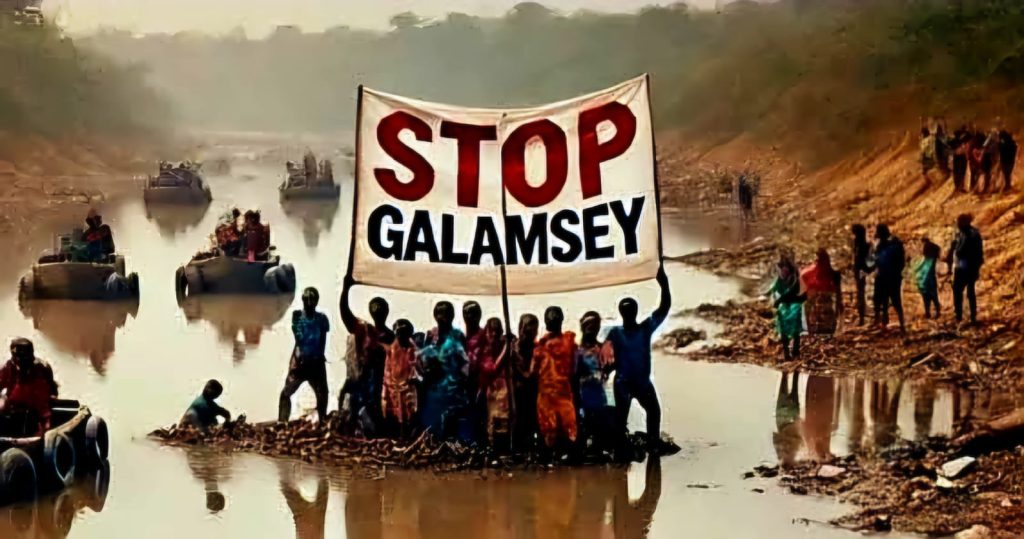Ghana is bracing for a nationwide lockdown on Monday, September 30, as civil servants and labor unions ramp up protests against the widespread illegal mining, locally known as Galamsey. The unchecked mining has caused severe environmental damage, prompting urgent demands for government intervention, including declaring a state of emergency in affected regions and revoking mining licenses.
The Ghana Water Company Limited (GWCL) warns of worsening water shortages, revealing that 60% of the country’s major water bodies are now polluted. GWCL also reports that water treatment plants are struggling, with turbidity levels soaring to 14,000 NTU, far beyond the 2,000 NTU they can handle.
Growing Demand for Government Action
A coalition of civil society groups, labor unions, media organizations, and religious leaders has heightened its pressure on the government to take swift and decisive action against the illegal mining crisis. These groups are calling for the immediate declaration of a state of emergency in regions most affected by illegal mining, particularly those where water sources have been heavily contaminated. They are also urging the government to deploy security forces to evict illegal miners from water bodies and revoke mining licenses across the board.
Dr. Kenneth Ashigbey, Convener of the Ghana Coalition Against Galamsey, emphasized the urgent need for intervention, comparing the situation to a wartime scenario. “In war, poisoning the enemy’s water is seen as a crime. Here, however, we are allowing our own water sources to be poisoned, and our leaders are standing by. This is not just an environmental issue—it’s a national emergency, and the president must take immediate action.”
Albert Kwabena Dwumfour, President of the Ghana Journalists Association, reinforced these demands by calling for military intervention. He specifically urged the government to send the armed forces to clear out illegal miners from the affected regions and to cancel all existing mining permits in biodiversity hotspots and forest reserves.
Environmental Destruction Worsens
The illegal mining activities, widely known as Galamsey, have left a trail of environmental devastation across Ghana. Beyond contaminating vital water sources, these operations have wreaked havoc on farmlands, particularly in cocoa-producing areas, severely threatening the country’s agricultural output. Additionally, at least 34 forest reserves have been destroyed as a result of unchecked mining activities, further escalating the ecological crisis.
With a nationwide lockdown looming and the environmental damage escalating, all attention is now focused on the government’s response. The growing public outrage reflects the increasing concern over the future of Ghana’s natural resources, particularly its water security and agricultural productivity. The country is now at a critical juncture, and many believe that only decisive government intervention can prevent further degradation of Ghana’s ecosystems.
The stakes are high, as failing to act not only risks long-term damage to the environment but also jeopardizes the livelihoods of communities dependent on these lands and water bodies. As Ghana approaches the lockdown, the government’s next moves will determine the course of this crisis and whether the country can stem the tide of environmental destruction before it’s too late.

